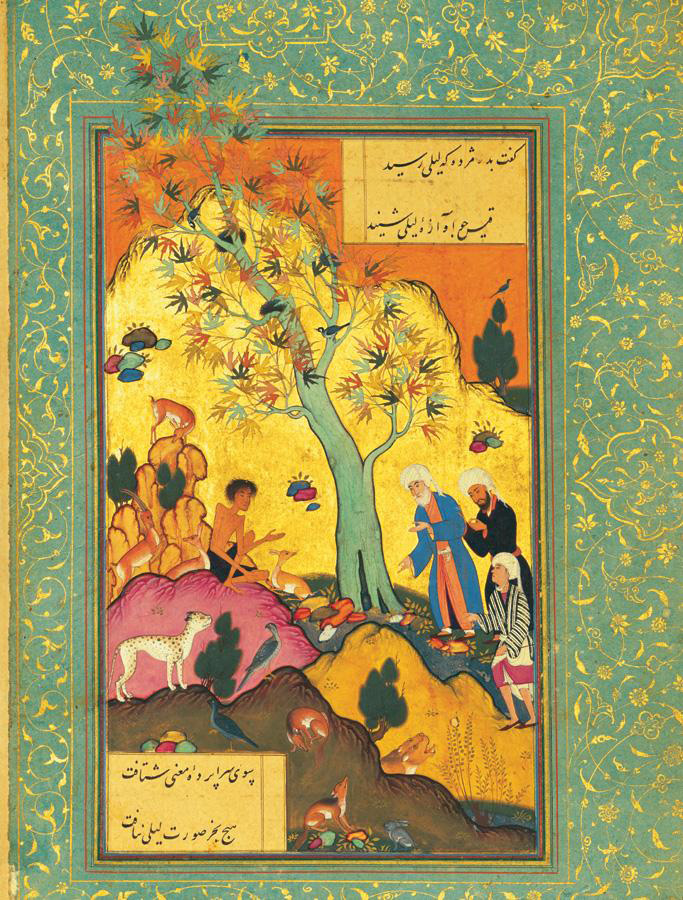FWP:
SETS == STRESS-SHIFTING
The clever bhī in that little phrase 'to you too' at once makes it clear that either (1) the speaker has shown this to other people already, so that his credentials for Majnun-ship are not in doubt; or that (2) you would see it the way Laila saw what Majnun did. (Or, of course, both.)
What exactly prevents the speaker from showing the addressee what Majnun did? The second line actually offers a number of possibilities; as we shift our emphasis among them, the interpretation changes. These possibilities include:
=A lack of 'leisure': what Majnun did was rather trivial, and we're busy with more important pursuits.
=A 'tension' [kashākash], literally a 'pulling back and forth': Majnun was able to break the tension and simply run off openly into the wilderness, but the speaker is engaged in an inner struggle much more complex than his.
=A 'grief': Majnun had the energy and vitality to run all around in the desert, but the speaker's grief is so much deeper and more deadly that he's not even able to move.
=A 'hidden' grief: Majnun made a rather naive, childish display of himself, since he lacked the fortitude to control his behavior; but the speaker is stronger and more enduring. (Compare {100,4}.)
This is one of a group of what I call 'snide remarks about
famous lovers'; for more on these, see {100,4}.
This verse also reminds me of {5,5}, in its
dismissive, shrug-of-the-shoulders attitude toward mere outward theatrics.

Nazm:
That is, if grief would not so grip us, then we too, like Majnun, would go out into the desert. (171)
== Nazm page 171